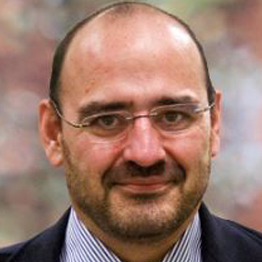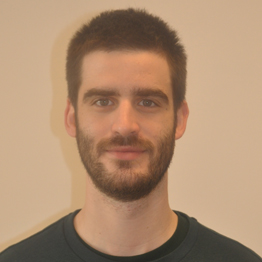Computational Biology
Our researchers tell you
what they are working on

The group Computational Biology of Tecnun is a multidisciplinary team, with extensive experience in the development of optimization algorithms, statistical analysis, as well as methods based on machine learning and deep learning, mainly focused on issues in the field of human health through data of high molecular resolution (genomics, transcriptomics, proteomics, metabolomics, etc) and instructions of biological data (genomic, pharmacological, metabolic, etc). Currently, we are working on the following topics:
![]() Metabolic reprogramming in cancer to identify new therapeutic targets and markers of response.
Metabolic reprogramming in cancer to identify new therapeutic targets and markers of response.
![]() Integration of massive gene silencing experiments and drugs at framework in precision oncology.
Integration of massive gene silencing experiments and drugs at framework in precision oncology.
![]() Study of alternative splicing in different types of cancer: its alterations, causes and effects.
Study of alternative splicing in different types of cancer: its alterations, causes and effects.
![]() Predictive models of drug toxicity based on structural features.
Predictive models of drug toxicity based on structural features.
![]() Influence of the gut microbiota on health and nutrition.
Influence of the gut microbiota on health and nutrition.
![]() Specific compression schemes for different omics data. Active members in the development of the MPEG-G standard for the representation of genomic data.
Specific compression schemes for different omics data. Active members in the development of the MPEG-G standard for the representation of genomic data.
![]() DNA data analysis. Methods to improve the identification of biological variants in germline and cancer.
DNA data analysis. Methods to improve the identification of biological variants in germline and cancer.
![]() Inference of gene regulatory networks for RNA data from bulk and single-cell sequencing.
Inference of gene regulatory networks for RNA data from bulk and single-cell sequencing.
![]() Characterisation of HERV (human endogenous retroviruses) in cancer and brain samples.
Characterisation of HERV (human endogenous retroviruses) in cancer and brain samples.
During these years, we have actively collaborated with different research centres and companies. The most relevant are: CIMA, Clínica Universidad de Navarra, CIC BioGUNE, Biodonostia, FISABIO, Onkologikoa, University of Granada, Celgene, Biobide, Universitat Politècnica de Catalonia, University of Illinois at Urbana-Champaign, Stanford University, and Universidad de la República (Uruguay).
 Members of the group
Members of the group
Ángel Rubio Díaz-Cordovés
Full Professor
(coordinator)
+34 943 219877 Extension: 842802
View CV "View CV of Ángel Rubio Díaz-Cordovés".Francis Planes Pedreño
Full Professor
+34 943 219877 Extension: 842802
View CV "View Francis Planes Pedreño's CV".Juan Angel Ferrer-Bonsoms Hernández
Assistant Professor
+34 943 219877 Extension: 842997
Idoia Ochoa Álvarez
Collaborating Professor
+34 943 219877 Extension: 842845
View CV "View CV of Idoia Ochoa Álvarez". Latest highlighted projects
Latest highlighted projects
project SYNLETHAL
New computational approach to reduce synthetic lethality in cancer
Two genes are synthetic lethal if inactivation of each gene separately does not compromise the cellular development , but inactivation of both causes cell death. This concept is promising in cancer research , as it opens new possibilities for developing more selective and effective therapeutic strategies. The search for synthetic lethals is complex: a comprehensive search for all possible gene pairs requires more than 200 million gene silencing experiments. Moreover, except for specific exceptions, synthetic lethality is context-dependent, i.e. two genes can be synthetic lethals in one cell line, essential genes in another and not expressed in a third. Therefore, there is a need to contextualize the domain in which synthetic lethality is predicted and to develop new computational tools that systematically address this issue.
In the framework of project SYNLETHAL, new algorithms have been developed to predict and exploit the concept of synthetic lethality in cancer. First, the theoretical prediction models based on molecular networks and genetic Minimal Cut Sets (gMCSs), a concept previously developed in the framework of the project METARGETS, which was funded in the previous call of this program research have been significantly improved. In particular, SYNLETHAL optimizes the performance of previous algorithms, extending their application to molecular models that integrate metabolic, regulatory and signaling networks. Secondly, new empirical methods for synthetic lethality prediction are presented, using a wide variety of information, such as the biological and molecular function of the genes involved and the presence of mutually exclusive mutations. In turn, new deep learning techniques have been applied to the prediction of synthetic lethality and drug response, achieving very promising results.
The algorithms developed allow a more global understanding of synthetic lethality predictions and the identification of new genetic and nutritional vulnerabilities in cancer. In particular, new therapeutic targets and response markers have been identified in different hematological tumors, particularly acute myeloid leukemia, acute lymphoblastic leukemia and multiple myeloma, obtaining very promising in-vitro experimental results.
Funding:
project PID2019-110344RB-I00 funded by MICIU/AEI /10.13039/501100011033
















